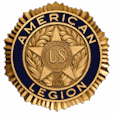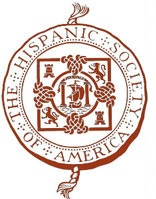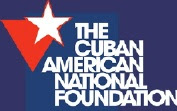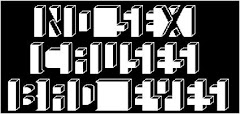
Pro Bono
May 9, 2008
By Thomas AdcockNew York Law Journal
By Thomas AdcockNew York Law Journal
A unique partnership between the federal government and the New York City Bar Association is the latest of several initiatives by which attorneys are volunteering to help individuals caught in the kind of financial distress registered by record numbers of bankruptcy filings, home foreclosures, evictions and debt recovery litigation.
Set to launch next month is the Lawyers Foreclosure Intervention Network, a two-year pilot project developed by the Federal Reserve Bank of New York to be administered by the City Bar Justice Center.
Other pro bono initiatives in aid of financially-strapped New Yorkers are underway through the Legal Services for New York City, New York County Lawyers' Association, and the Feerick Center for Social Justice at Fordham University School of Law.
Thomas C. Baxter, general counsel at the New York Federal Reserve, which states its purpose as safeguarding the "soundness and vitality of our economic and financial systems," said the Foreclosure Intervention Network would provide "counseling-plus," by which private attorneys would represent subprime borrowers in negotiations with their banks to modify loan agreements.
"The Fed is actively involved in counseling programs," said Mr. Baxter, but "this is an enhancement."
The home mortgage foreclosure rate nationally, he added, is seen by the Fed as "an urgent problem. We've been thinking about different kinds of solutions that would prevent unnecessary foreclosures and the negative effects they can have on both borrowers and communities."
According to a recent report from the Washington, D.C.-based Mortgage Bankers Association, foreclosures rose to a 23-year high at the end of 2007.
Government partnership is "the really interesting part to me," said Lynn Armentrout, now in the process of closing down her solo practice in tenant-side Housing Court law to take on the job as director of the city bar pilot project.
She said of the Federal Reserve, "It's an agency involved in macro economics, the big picture. And here we are, matching up individual distressed homeowners with members of the private bar. Now, that's a framework."
The main hurdle to achieving such framework, according to Lynn M. Kelly, executive director of the City Bar Justice Center, was a matter of client conflict: since most New York law firms with associates to spare for pro bono duty represent financial institutions that back subprime mortgagers, how might they follow Disciplinary Rule 5-105(C) of the Code of Professional Responsibility?
On April 18, the city bar's Committee on Professional and Judicial Ethics greenlighted the project with an opinion concluding that "the financial institution may consent to have a law firm that represents it also negotiate adversely to it in a non-substantially-related matter."
Last October, Mr. Baxter and others at the Federal Reserve Bank met with managing partners of several large firms to discuss such "limited waivers." After reaching agreement in principle, he sought out the City Bar Justice Center to run the pilot program. The Federal Reserve Bank has committed $150,000 for each of the next two years with a renewal option for a third.
"Being able to tap into the resources of large, powerful firms was dependent on having that ethics opinion," said Ms. Kelly, who said she hopes to attract as many as 80 volunteer lawyers. "It's breaking new ground."
Mr. Baxter said potential clients of the program often "don't have the financial literacy to be able to understand the options open to them. They're in a position where they can't deal with their lending bank and need someone to be their advocate [to] help these borrowers stay in their homes and work out some appropriate accommodation."
Ms. Armentrout said training sessions for volunteer lawyers are set for June 18 and 19 at city bar headquarters on West 44th Street. The number of CLE credits is yet to be calculated, but the program's purpose is clear.
"The idea is to try to save homes," said Ms. Armentrout, "and to try to save credit lines."
Mr. Baxter offered a simple standard for client qualification. "If you're facing foreclosure or can't make [mortgage] payments," he said, "you're probably eligible."
Low-Income Consumers
For low-income New Yorkers who cannot meet credit card payments or other unsecured obligations, personal bankruptcy is often their only alternative. In such cases, 159 attorneys from 41 major firms have thus far volunteered counsel through the New York Bankruptcy Assistance Project, begun last October at Legal Services for New York City.
In addition, the city bar's Consumer Bankruptcy Project, begun in 2004, has attracted some 50 lawyers who have served 400 low-income clients with counseling and representation in Chapter 7 bankruptcy petitions.
William Z. Kransdorf, program coordinator for the Legal Services bankruptcy project, said the number of volunteer attorneys showing up for weekly half-day workshops where they screen clients has increased. After screening, said Mr. Kransdorf, attorneys return to their offices and draft bankruptcy petitions using software tied to a remote computer server, which he sees as an efficient means of monitoring the pro bono work and ensuring client privacy.
"One of the things I was living in fear of was sending out paper case files and never seeing them again," said Mr. Kransdorf.
Mr. Kransdorf said he was in talks with attorneys at Proskauer Rose and professors at Columbia Law School that could expand his project by establishing a bankruptcy clinic at the campus in Morningside Heights.
Clients eligible for Legal Services bankruptcy help cannot exceed annual earnings representing 200 percent of the federal poverty level statistic, or $20,800 for an individual and $42,400 for a family of four - rates that Mr. Kransdorf termed "absurd, especially for New York City."
Likewise, clients at the city bar's consumer bankruptcy project are bound by the same federal poverty standard customarily applied to nonprofit agencies.
Last year, according to consumer bankruptcy project director John McManus, 40 pro bono lawyers handled Chapter 7 cases, in which debtor individuals tend to have public benefits income that creditors cannot seize, or small businesses with few, if any, liquid assets.
This year, Mr. McManus oversees the work of 57 volunteers, which he said has cut the project's client waiting list from six months to four. "Still, our phone is certainly ringing more," he said.
Mr. McManus, like Mr. Kransdorf, is attempting to expand the project. To that end, Mr. McManus is looking for funding to underwrite the more complicated Chapter 13 filings, in which debtors may negotiate reduced cash payouts to creditors in return for keeping some of their assets.
The New York County Lawyers' Association offers two pro bono opportunities: the Legal Counseling Project, in which individuals contemplating bankruptcy may consult with volunteer lawyers during evening appointments at County Lawyers headquarters on Vesey Street; and the Manhattan Civil Legal Advice and Resource Office, which since late last year has assisted 74 debtors in pro se litigation before the New York City Civil Court.
Consumer debt, primarily from credit card bills, drives most personal bankruptcies, according to Mr. Kransdorf.
"That's the mechanism, that's the perception," he said. But Mr. Kransdorf said the three root causes are "divorce, job loss and medical."
People who use credit cards to manage finances "stay within their means for years, but wind up serving a debt load they can't withstand when something comes along and - bam!"
Consumers seeking bankruptcy protection "tend not to ever file again," said Mr. Kransdorf. "They go through a learning process."
Lawyers interested in volunteering service to the financially distressed may go through a learning process of their own on June 19 during a full day's workshops at Fordham University School of Law.
The workshops, co-sponsored by County Lawyers and the Feerick Center for Social Justice at Fordham Law, aim to develop strategies for pro bono lawyers in helping New Yorkers "stabilize and improve their financial health, build wealth . . . and be better protected against deceptive and abusive practices" by credit card companies and other lenders, according to a program statement.








+(3).jpg)



.jpg)
+(3).jpg)


No comments:
Post a Comment